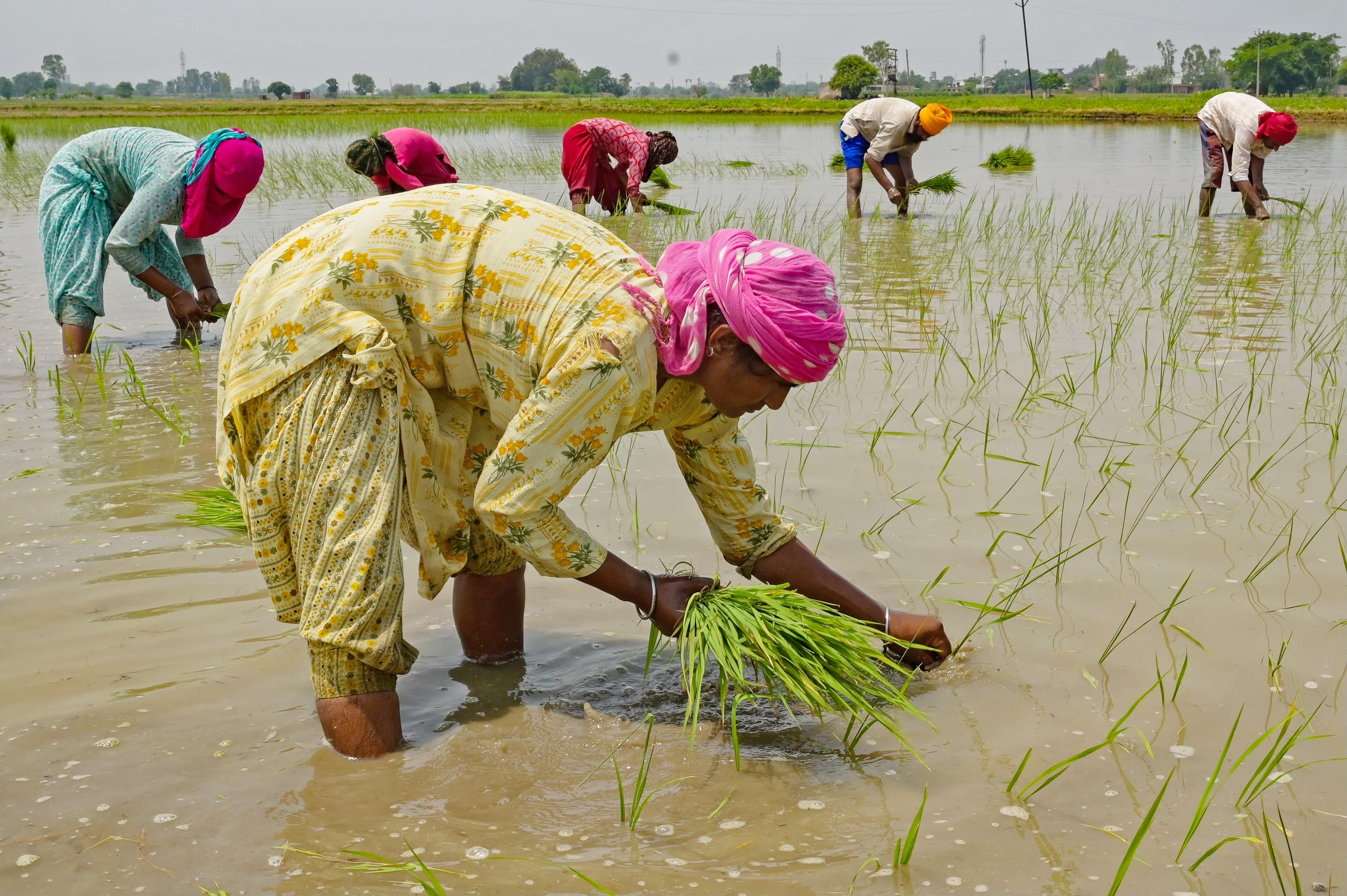 People plant rice saplings at a water-logged rice field on the outskirts of Amritsar on June 19, 2023. (PHOTO / AFP)
People plant rice saplings at a water-logged rice field on the outskirts of Amritsar on June 19, 2023. (PHOTO / AFP)
NEW DELHI / SINGAPORE - The International Monetary Fund (IMF) has encouraged India to remove restrictions on the export of a key variety of rice, saying it would have an impact on global inflation.
The Indian government on July 20 banned the export of non-Basmati white rice to boost domestic supply and keep retail prices under check.
Such restrictions are likely to exacerbate volatility in food prices in the rest of the world and lead to retaliatory measures, which can be harmful globally, Pierre-Olivier Gourinchas, IMF's Chief Economist and Director of the Research Department, told a press conference on Tuesday.
Global rice importers are likely to seek direct deals with governments in exporting countries as India's export ban is squeezing supplies and igniting concerns over food security
Global rice importers are likely to seek direct deals with governments in exporting countries as India's export ban is squeezing supplies and igniting concerns over food security.
Buyers from Africa to Asia are likely to scramble for rice shipments as supplies tighten in coming months following India's decision.
ALSO READ: India restricts rice exports, could fuel food inflation
The ban will cut availability of the staple on world markets by about a fifth, traders and analysts said, and could lead to importers seeking more government-to-government deals to overcome shortages and tame spiraling prices.
"Export restrictions inherently reduce trust in the dependability of international trade," said Shirley Mustafa, rice market analyst at the UN's Food and Agriculture Organisation (FAO).
"Thus, they could result in importing countries looking at government-to-government deals to ensure supplies."
While announcing its export ban last week, India has left the door ajar for such deals, saying that it will consider meeting the requirements of countries in need of rice supplies.
India's government deals
Last September, India banned exports of broken rice in a bid to cool domestic prices, but since then official data shows the country approved sales of around one million metric tons of broken rice to Indonesia, Senegal, Gambia, Mali and Ethiopia.
"The current ban excludes government-to-government sales, and it remains within the government's prerogative," said B.V. Krishna Rao, president of the Rice Exporters Association.
"A decision will be made based on the needs of importing countries and the supply situation in the local market."
READ MORE: Climate, conflicts raise stakes in hungry world
African buyers are likely to approach the Indian government for rice sales, and Asian importers such as Indonesia and the Philippines could sign government-to-government contracts with the region's top exporters Thailand and Vietnam, traders said.
Indonesia has signed an agreement with the Indian government to potentially import one million metric tons of rice if the El Nino weather pattern hits its domestic supplies.


